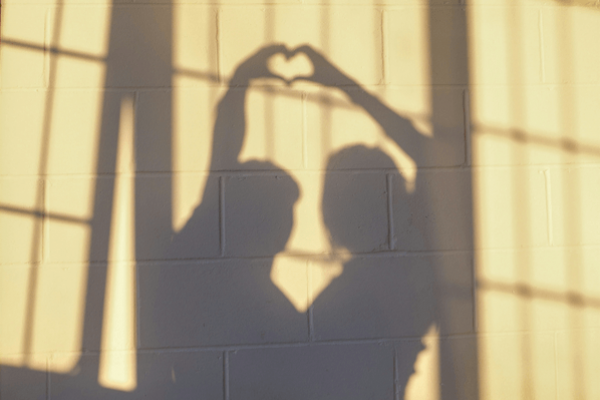As adults, if we get the chance to deconstruct our childhood faith, it can often be a traumatic process. Many of us share stories about working with a therapist to unpack trauma from the church, whether it is from the purity movement or the ongoing work of colonization. If you have spent much time on Twitter, you might find some of these conversations floating around, especially in ex-evangelical spaces. Many of us who grew up in the white evangelical church are asking questions about things like missions ideology, white supremacy in the church, toxic patriarchy and sexism, and violence against our LGBTQ friends.
But is deconstruction different for black, Indigenous, and people of color than it is for white people? What does it mean for a person of color to deconstruct? For a white person to deconstruct?
“… while I’m sympathetic with the need to rethink Christian faith, I don’t like the language of deconstruction. Deconstruction is too negative, too violent, too cynical. It has a tendency to lead to the irreverence of iconoclasm. This is the young Christian who having escaped the suffocating world of narrow fundamentalism, now just wants to burn everything down. This reaction, though understandable, is ultimately neither wise nor helpful.”
This was written by pastor and author Brian Zahnd on his blog in 2016. It has since sparked a lot of conversations — many have echoed these or similar sentiments, while others condemn his assessment. But it left me wondering why there is a disconnect in the ideas of deconstruction for different people.
While we want to claim that this is work that spans generations and cultures and racial dynamics, we have to realize that this looks different because our nation and religious foundations were created by white supremacy, by the idea that, "These vast lands ... need only assistance from us to become civilized …,” as Nicolas de Condorcet once said.
What, then, is the responsibility of the white psyche to deconstruct?
What does it look like for people who have been oppressed and assimilated into white culture to deconstruct?
I was surprised to find that non-Native, non-people of color find this idea to be “violent” or “offensive,” when, as an Indigenous woman, I find it absolutely necessary to deconstruct my faith, even while holding some cynicism with my hope. So, I went to Twitter. I asked other people of color to join me in answering some questions about deconstruction, and their responses were similar across the board: It is an essential part of our faith as black, Indigenous, and people of color to deconstruct our faith and ask questions.
Zahnd, in this blog post, is essentially saying that our anger cannot lead us to want to destroy the very foundations of a colonial Christianity that we see in America. While I understand what he is saying, those of us who come from generations of oppression, often at the hands of Christianity, must point out that our anger is a welcome place to explore what it means to engage a Christianity void of white supremacy — and to ask if that is even possible. Zahnd suggests that, instead of deconstruction, we use a phrase called art restoration.
But for many of us, to even get to the idea of restoring anything, we have to be able to be angry about what has been done to our ancestors. We have been told to settle down, to leave our anger and our trauma at home, and so it is troubling to be told that our real need to deconstruct should be skipped altogether to get to the restoration part.
One person I interviewed said this:
To make room for the diversity of God’s people ... no, actually, to acknowledge the room that God has already made for the diversity of God’s people — that is necessary, and I see that as both deconstructing what was and participating in constructing what needs to be.
The theology of deconstruction is necessary for the white psyche to take an honest look at the root of white supremacy, because Christianity warped by white supremacy and settler colonialism must be dealt with — and not just by black, Indigenous, people of color. It is a gift for everyone to ask how Christianity can be better than it has been; yet, whiteness looks at angry people of color as a threat to the institution, holding on tightly to its foundations of white supremacy.
Yes, even on an individual level, based on all of our individual experiences of trauma with our childhood faith must be dealt with, for example, the many people who have come out with sexual abuse stories in the Southern Baptist Church. It is absolutely necessary to deconstruct from that space. But speaking on a communal level, it is necessary for whiteness to be deconstructed so that toxic patriarchy isn’t repeated generation after generation in the American church.
I asked this group of people what they considered to be the fruits of deconstruction. One person answered in this way:
… when we think about how to transform human dynamics, how to better love one another, how to be present to each other’s struggles, deconstruction is essential. It will be painful, but it will return us to humility, to love, to becoming each other’s keepers not punishers. Deconstruction is a return to love.
Perhaps coming to a space of deconstruction does not mean we need to stay there. Deconstruction should, at some point, lead to reconstructing something that is better than the former. But to get there, people of color cannot be afraid to be angry and to ask questions. And white people must be willing to listen to that anger and hold it in solidarity, because our systems of oppression must be criticized, scrutinized, and, in many cases, taken down to create something new. That work cannot happen only because black, Indigenous, and people of color want it to happen, and we cannot be the only ones doing that work.
“Spiritual progress does not begin with the new day, with knowing, but with a new un-knowing,” Brian Zahnd said in a recent sermon series called “Dark Nights and New Dawns.” He uses the language of taking a sledge hammer and knocking down some bricks of what we had built of a toxic faith, or the rooms of our theological house. Perhaps he and others are exploring the many ways in which deconstruction is not only spiritually healthy, but necessary.
Knowing, un-knowing, new knowing.
I would say that this un-knowing space is deconstruction, perhaps even decolonization, so that there is new knowing, even in ways that risk leading people away from the church. Still, in America, ideas of decolonization and deconstruction may remain a “too intense” way to describe this work, especially for those who uphold systems of toxic patriarchy and do not want to see them fall.
While many fear that deconstruction will lead to nothingness, perhaps we are underestimating the powerful love of God that holds us when we have nothing left to hold on to, even when we have deconstructed down to the bareness of everything. Those on the outside understand this on a systemic level, and perhaps they are the ones we should be listening to.
The question is: Do our experiences matter enough to make the white church angry enough to deconstruct alongside us? We are watching history unfold with the answer right now, and I hope that the church will be angry enough to listen for the sake of a better, reconstructed and restored future.
Got something to say about what you're reading? We value your feedback!







